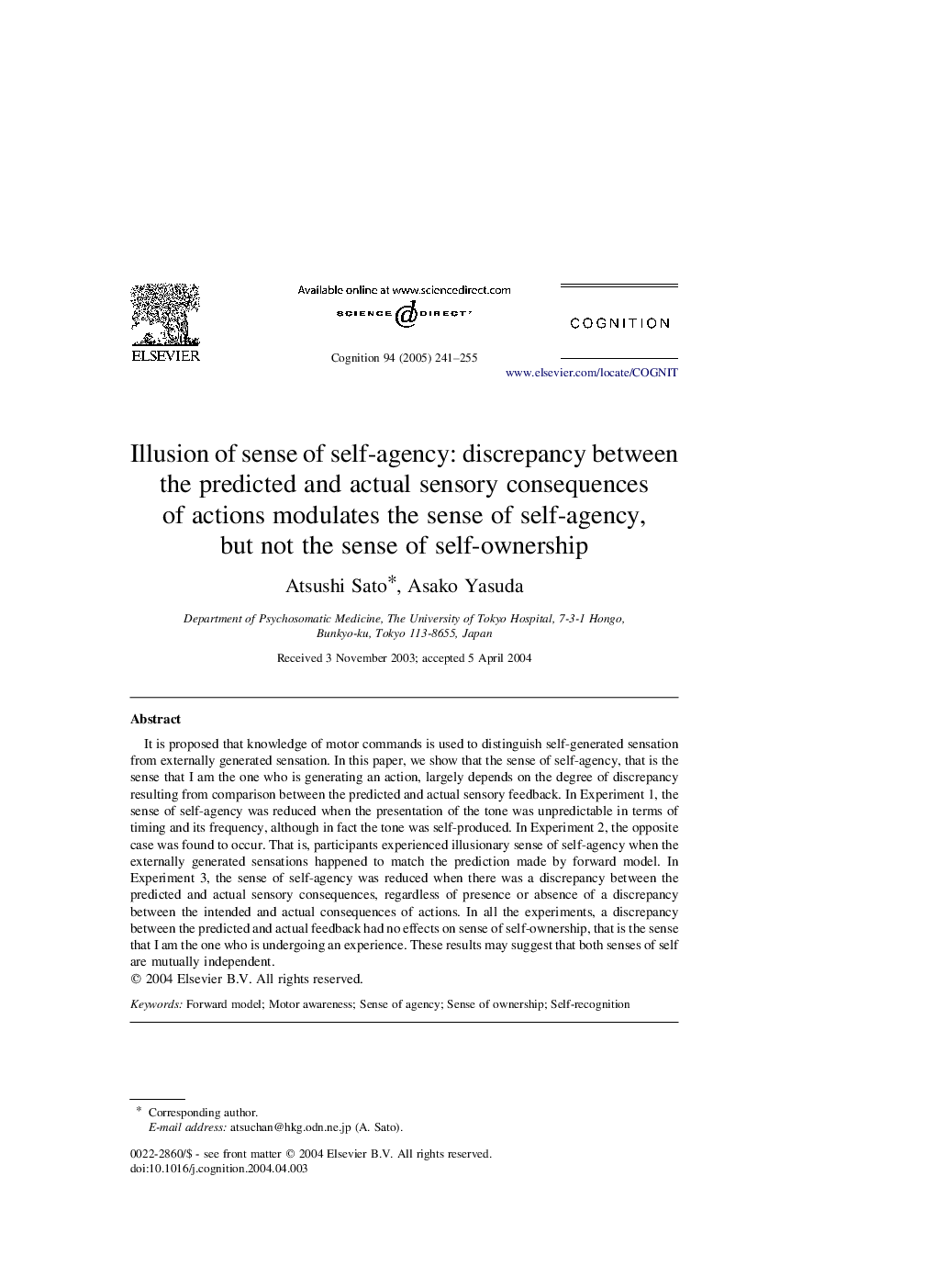| Article ID | Journal | Published Year | Pages | File Type |
|---|---|---|---|---|
| 10458167 | Cognition | 2005 | 15 Pages |
Abstract
It is proposed that knowledge of motor commands is used to distinguish self-generated sensation from externally generated sensation. In this paper, we show that the sense of self-agency, that is the sense that I am the one who is generating an action, largely depends on the degree of discrepancy resulting from comparison between the predicted and actual sensory feedback. In Experiment 1, the sense of self-agency was reduced when the presentation of the tone was unpredictable in terms of timing and its frequency, although in fact the tone was self-produced. In Experiment 2, the opposite case was found to occur. That is, participants experienced illusionary sense of self-agency when the externally generated sensations happened to match the prediction made by forward model. In Experiment 3, the sense of self-agency was reduced when there was a discrepancy between the predicted and actual sensory consequences, regardless of presence or absence of a discrepancy between the intended and actual consequences of actions. In all the experiments, a discrepancy between the predicted and actual feedback had no effects on sense of self-ownership, that is the sense that I am the one who is undergoing an experience. These results may suggest that both senses of self are mutually independent.
Related Topics
Life Sciences
Neuroscience
Cognitive Neuroscience
Authors
Atsushi Sato, Asako Yasuda,
